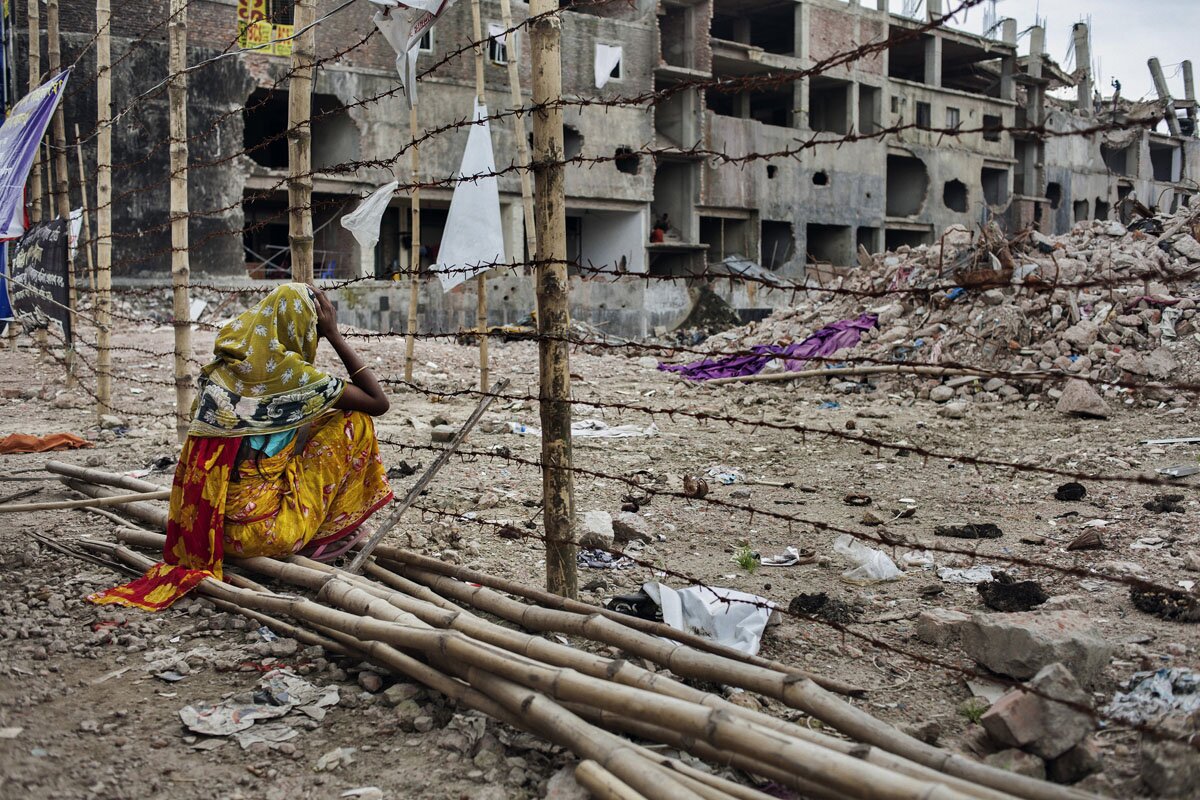
Slavery is far from a “thing of the past“ with 27 million people enslaved today – more than any other time in human history. While initiatives like Fair Trade Atlanta are working to move the needle on ethically sourced products, it takes people across sectors to push it in the right direction.
“We are trying to increase community awareness around fair trade policies, the importance of earning a living wage, and appropriate working conditions for individuals from around the world” stated Michelle Youngblood, who currently leads Fair Trade Atlanta.
“I want to educate people but I don’t want to be an evangelist” Michelle continued. “People will talk about going to different stores and how cheap the store is but you have to understand that it’s cheap for a reason.”
One amongst the many horrifying instances is the 2013 collapse of Rana Plaza which resulted in 1,129 deaths, the largest garment-factory accident in history. “Prior to working with Fair Trade Atlanta, I never thought much about slave-made products but I’ve really opened my eyes to what’s happening and the more I learn, the more horrifying it is.”
“There seems to be a lack of knowledge about the supply chains of products we use, and a level of apathy to know what is in them” stated Tirzah Brown, who initially started the fair trade committee in Atlanta. “Many products we buy daily, such as coffee, chocolate, bananas, Christmas decorations, and cotton, are produced with slave-like farm or factory conditions and threats.”
 “For Atlanta to learn about fair trade and choosing to ask for and purchase fair trade certified products, can collectively increase demand for ethically sourced products, prompting all producers to monitor their supply chain,” Tirzah continued.
“For Atlanta to learn about fair trade and choosing to ask for and purchase fair trade certified products, can collectively increase demand for ethically sourced products, prompting all producers to monitor their supply chain,” Tirzah continued.
While organizations like Fair Trade Atlanta will continue to advocate for individuals and against slave-made products, their fight is often clouded. “There are valid criticisms of the fair trade certification process, but, as it stands now, it is the best system for ensuring supply chain accountability,” explains Tirzah. “Fair trade products are slightly more expensive than their non-certified counterparts. However, the extra dollar for a pound of coffee is easy to pay when one considers that none of the money is being used in exploitative labor practices, and is in fact often being reinvested in the producer communities for cooperatives and schools.”
“Little by little we can make an impact,” Michelle added. “I feel like the momentum nationwide and worldwide is growing. That gives me hope and optimism but there’s much more to do.”
If you want to see how you are linked to slavery, take this Slavery Footprint Quiz. Fair Trade Atlanta is also partnering with businesses across the city that create ethically-sourced products. A few of those you can support include Bond Organic Market, Corner Cup, Re:Loom, Abyssinia Cafe Grocery, Ten Thousand Villages, Buenos Dias Cafe, Refugee Sewing Society, Trades of Hope and Honest Tea.
Headline photo from the film Life nor Germ. Additional photos are property of Fair Trade Atlanta.

